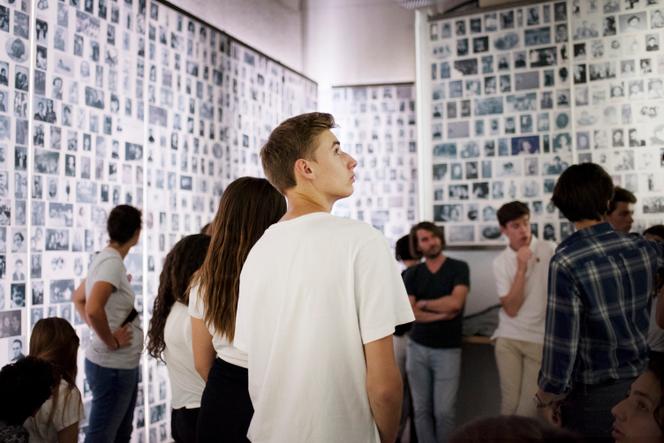


"When adults think of anti-Semitism, they think of the Holocaust, Vichy, the Dreyfus affair, whereas very young people immediately think of the Israeli-Palestinian conflict." Speaking on France Inter on November 13, sociologist Pierre Rosanvallon observed a generation gap, the day after the march against anti-Semitism that brought together 180,000 demonstrators in France. There were very few young people in the Paris march, noted the intellectual, who then suggested that, in the minds of some, the link between contemporary anti-Semitism and that inscribed in the collective memory as having led to the destruction of European Jewry had been broken.
While over 1,500 anti-Semitic acts have been recorded in France since October 7, the date of the Hamas attack on Israel, Rosanvallon's observation reflects a paradox well known to specialists in the history of the Holocaust: "Knowledge of the history of the Holocaust and anti-Semitism, as well as the quality of teacher training on the subject, has never been so good," said historian Annette Wieviorka. "And at the same time, not since World War II have we seen a rise in anti-Semitism like the one today."
What explains the fact that the memory of genocide, which for many is a kind of moral bulwark, no longer acts with the same force to protect today's French people against rejection of the other? "Students have no trouble condemning the persecution of Jews, finding the Holocaust and the Dreyfus affair [in which a Jewish military captain was convicted of treason] reprehensible," reported Christophe Tarricone, a history teacher at Grenoble's Lycée Emmanuel-Mounier and trainer for the Mémorial de la Shoah (France's main Holocaust museum). "The problem is that this doesn't prevent some of them from rejecting today's Jews. We're on two different registers: that of history, and that of the sensitive, of individual and group identity."
To explain this dissonance, teachers point first of all to the over-ambitious nature of history curricula, which leave little time to get to grips with the subject. "Situating the Holocaust in the long history of anti-Semitism takes time," Tarricone pointed out. "But in the final year of high school, you're going to be referring to a lot of very deadly events." In this context, grasping the singularity of the Holocaust is difficult. Historian Tal Bruttmann believes the French state has put itself in a paradoxical situation: "The prevention of anti-Semitism has been made a priority by successive governments, and at the same time, the place of the Holocaust in history curricula has been reduced," he said.
You have 70% of this article left to read. The rest is for subscribers only.
